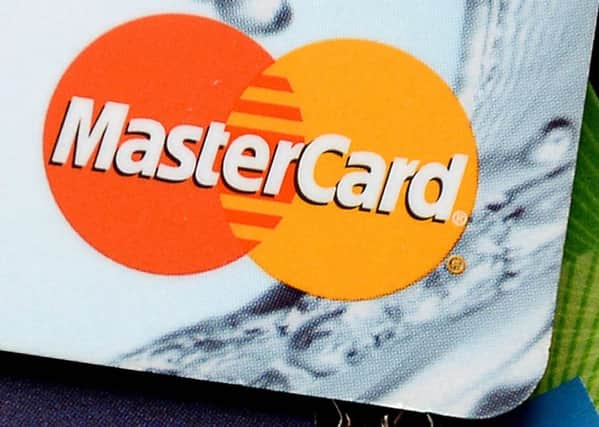Ban on card fees has boosted transactions says Mastercard


Ms Cairns said the ban on surcharging had been “fantastic” not only for consumers, but also the credit card industry.
She told the Press Association that Mastercard’s transaction numbers had increased since the ban came into force across Europe in January, which prevents firms from charging consumers for using credit or debit cards or PayPal.
Advertisement
Hide AdAdvertisement
Hide Ad“The elimination of (surcharges) has been fantastic for consumers and we’ve seen more transactions,” she said.
“It’s been hugely positive.
“When I go to other countries in the world and find out I’m being surcharged, I go nuts,” she added.
But there are worries a no-deal Brexit scenario could prove the ban is short-lived in the UK.
Recent technical papers released by the Government revealed the ban would no longer cover cross-border payments between the UK and Europe in the event of a cliff-edge withdrawal.
Advertisement
Hide AdAdvertisement
Hide AdThe Treasury said the cross-border card charges cost Britons £166m in 2015.
Ms Cairns brushed aside fears the ban would not be enforced, saying she “can’t ever see it coming back in”.
“Consumers would make their preference heard,” she said.
Aside from Brexit implications, Ms Cairns - who was promoted from international president to vice-chairman of the global payments giant in June - said the industry has also been grappling with a raft of IT meltdowns this year.
As well as the IT failure that blocked millions of Visa payments in June, there has also been technology meltdowns at high street lender TSB, as well as a number of cyber hacks that have compromised millions of consumer card details.
Advertisement
Hide AdAdvertisement
Hide AdMs Cairns said Mastercard spends a “huge amount” each year on prevention and detection of cyber crime, while the group also builds these systems to sell to banks.
She blames ageing technology and botched migrations for the recent spate of banking meltdowns, but insists the industry is getting better.